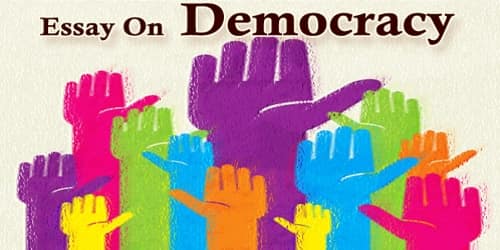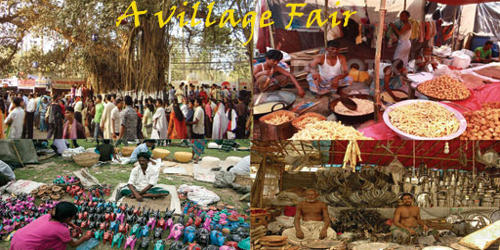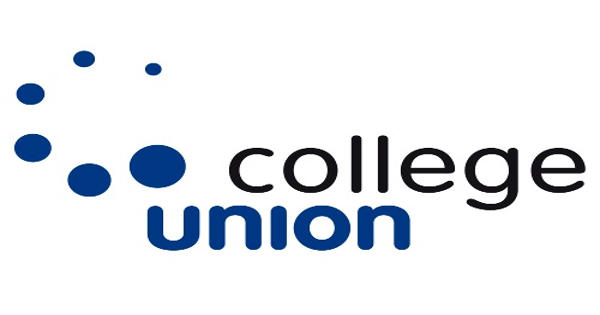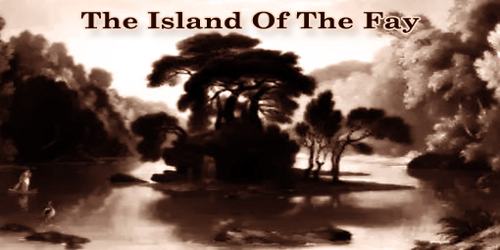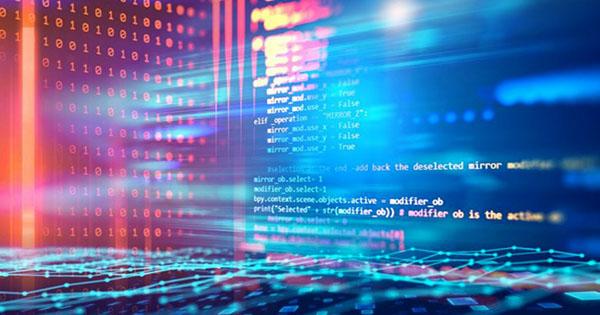Introduction: ‘Democracy’ (Greek: δημοκρατία dēmokratía, literally ‘rule by people’) as we know it today was not truly defined until the Age of Enlightenment in the 17th and 18th centuries, and it is a form of government in which the people have the authority to choose their governing legislation. Who people are and how authority is shared among them are core issues for democratic development and constitution. Some cornerstones of these issues are freedom of assembly and speech, inclusiveness and equality, membership, consent, voting, right to life and minority rights.
It is a popular form of government. Here is the government; the representatives are elected by the direct votes of all classes of people. In such a form of the government, all citizens without any distinction between caste and creed have the right to enjoy equal rights.
Abraham Lincoln truly said,
“Democracy is a government of the people, by the people and for the people.”
The govt. claims to be a government of the people. The main task of this govt. is to keep people under control.
Classifications of Democracy: Generally, there are two types of democracy: direct and representative. In the direct democratic gout, all the citizens can take an active or a direct part in the governance. They can participate in the administrative, judiciary and legislative functions. But in an indirect democratic govt. people take part in constitutional and administrative affairs through their elected representatives.
The Concept of Democracy: Democracy is a system of processing conflicts in which outcomes depend on what participants do, but no single force controls what occurs and its outcomes. The uncertainty of outcomes is inherent in democracy. Democracy makes all forces struggle repeatedly to realize their interests and devolves power from groups of people to sets of rules.
The concept of democracy came into being in Europe in the 18th century. The introduction of democracy began through the French and the American Revolution. Then it spread all over the world based on equal political and social rights. In the form of a democratic government universal franchise is also entertained.
People can choose, select and elect their competent representatives at their suit will. The government is liable to people for their actions. Freedom of speech and freedom of the press have their great roles in a democratic govt. There are more political parties to form public opinion and to criticize the government openly.
According to American political scientist Larry Diamond, democracy consists of four key elements: a political system for choosing and replacing the government through free and fair elections; the active participation of the people, as citizens, in politics and civic life; protection of the human rights of all citizens; a rule of law, in which the laws and procedures apply equally to all citizens. Todd Landman, nevertheless, draws our attention to the fact that democracy and human rights are two different concepts and that “there must be greater specificity in the conceptualization and operationalization of democracy and human rights.”
Advantages and Disadvantages of Democracy: In simple words, in democracy, any citizen of the country can vote for anybody and can have his or her opinion without any fear or bias, in order to understand it better; here some of the advantages and disadvantages of democracy are –
Advantages –
- The first and foremost advantage of democracy is that citizens of the country are put first in this system of government and therefore citizens of the country are free to move anywhere, have their opinion on all matters and ultimately to vote out the government if it is not working in the interest of citizens as well as the country. In a democracy, all citizens are given equal rights and freedom irrespective of their caste, income, and age.
- Another benefit of democracy is that government is always in check because they know that people will vote them out if they do not work according to the expectations of the people of the country and therefore chances of government misusing the taxpayer’s money and resources of the country are less as compared to those countries where there is no democracy.
- Another advantage of democracy is that growth and development are not lopsided and it tries to achieve growth for all sections of the society by taxing the rich people and giving subsidies to poor and weaker sections of society. Hence in a way, it tries to ensure that wealth does not get accumulated in the hands of a few rich people and all citizens of the country enjoy the fruits of the development of the country.
Disadvantages –
- The biggest drawback of democracy is that chances of people getting influenced and following sheep mentality and voting in favor of incompetent government are high and there is no way to reverse that decision as the government in case of democracy comes into power for 3 or 5 years. An incompetent government for 5 years means country going backward and it takes decades to rectify the mistakes of incompetent governments. Hence it is better than an uneducated voter who does not vote rather than giving the vote to incompetent political parties.
- Another limitation of democracy is that due to bureaucratic culture in government offices and departments’ corruption is rampant which makes a mockery of all the policies and schemes of government as the real benefit of good policies does not reach the people for whom these policies are targeted. In simple words theoretically, the government in democracy tries to do the right things but on the ground practically it does not benefit the people leading to dissatisfaction among people of the country.
- Another disadvantage of democracy is that since the government has to take the consensus of all the parties on major policy matter and decisions it results in the delay in decision making and policy paralysis which in turn have a big negative effect on the GDP as well growth trajectory of the country in the long term.
Democracy contrasts with forms of government where power is either held by an individual, as in an absolute monarchy or where power is held by a small number of individuals, as in an oligarchy. Nevertheless, these oppositions, inherited from Greek philosophy, are now ambiguous because contemporary governments have mixed democratic, oligarchic and monarchic elements. Karl Popper defined democracy in contrast to dictatorship or tyranny, thus focusing on opportunities for the people to control their leaders and to oust them without the need for a revolution.
Conclusion: Bangladesh is a democracy. But most Bangladeshis are illiterate, ignorant, block-headed and politically unconscious. So they should be imparted education, made conscious and responsible. Then a good democratic government will be possible here and people will be able to enjoy a truly democratic right.
Information Sources:
